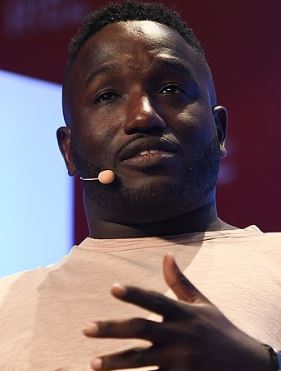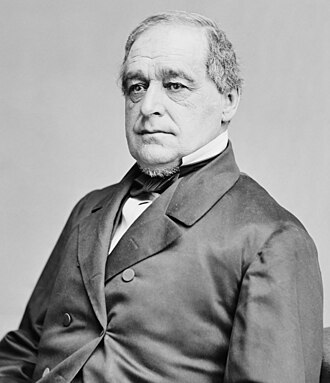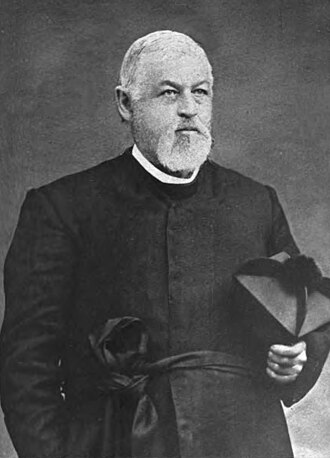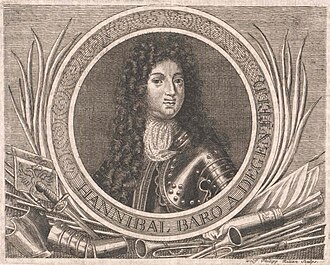Discover Your Roots
SIGN UPDiscover Your Roots
SIGN UPHannibal is a male name of Hebrew origin, meaning "One Who Baal Has Favored." It is a Latinized version of the Carthaginian given name ḤNBʿL, which translates to "Baal is Gracious." The name gained historical significance through the renowned Carthaginian leader Hannibal, who commanded forces during the Second Punic War. Notable figures bearing this name include military commanders, politicians, athletes, and fictional characters. Hannibal's continued use across different cultures can be attributed to the enduring legacy of these historical figures. Whether associated with ancient military prowess or modern-day achievements, the name Hannibal carries a sense of favor and grace, reflecting its Hebrew roots and historical significance.

Hannibal Buress, born on February 4, 1983, is a prominent American comedian, actor, producer, and writer. He gained recognition for his stand-up routine on October 16, 2014, which brought widespread attention to the sexual assault allegations against Bill Cosby. Hannibal's career began in 2002 while attending Southern Illinois University, and he has since starred in various television shows, including Adult Swim's The Eric Andre Show and Comedy Central's Broad City. Furthermore, he has ventured into podcasting with the creation of Handsome Rambler and has made appearances in movies such as Spider-Man: Homecoming. Buress has been featured in several late-night talk shows and has released stand-up comedy albums, receiving positive reviews. His notable contributions to the comedy industry have solidified his position as a respected figure. Hannibal's impactful routine addressing Bill Cosby's alleged actions sparked widespread discussion and brought attention to the allegations. His unwavering dedication to comedy and social commentary has made him a significant figure in the entertainment industry.

Hannibal Hamlin (1809–1891) was an American politician and diplomat who served as the 15th vice president of the United States from 1861 to 1865 during President Abraham Lincoln's first term. He was the first Republican vice president and a strong abolitionist. Beginning his political career as a Democrat, Hamlin later joined the newly formed Republican Party due to his anti-slavery views. He was elected to the United States House of Representatives and the Senate, and also served as the U.S. Minister to Spain. Hamlin played a crucial role in balancing the Republican ticket in the 1860 general election, providing regional balance alongside Lincoln. Despite not being a close friend of the president, he supported key projects such as the Emancipation Proclamation. After being replaced as vice-presidential nominee in the 1864 election, he continued to serve in various political positions before retiring in 1882. Hamlin was born in Maine and married twice, fathering six children. His political career began in 1835, and he was known for his opposition to the extension of slavery. This stance led him to withdraw from the Democratic Party and join the Republican Party in 1856. Hamlin's contributions to the anti-slavery movement and his role as vice president have left a lasting legacy in American history.

"Hannibal Brooks" is a 1969 British war comedy film directed by Michael Winner and written by Ian La Frenais and Dick Clement. The story, inspired by Tom Wright's war diary, follows Lance Corporal Stephen "Hannibal" Brooks, a British prisoner of war, as he attempts to escape from Nazi Germany to Switzerland during World War II, accompanied by a female Asian elephant named Lucy. The film stars Oliver Reed, Michael J. Pollard, and Wolfgang Preiss and features a mix of drama and humor as the characters navigate their way through dangerous situations. The movie received mixed reviews, with some critics praising Oliver Reed's performance while others criticized the confusing storyline and the performance of co-star Michael J. Pollard. Despite its mixed reception, "Hannibal Brooks" offers an intriguing and unique take on wartime escape stories, blending elements of adventure and comedy. The film's filming took place in Austria and Munich in 1968, and it was accompanied by a paperback novelization by Lou Cameron.

Hannibal Williston Goodwin (April 30, 1822 – December 31, 1900) is renowned for patenting a method to produce transparent, flexible roll film using nitrocellulose film base. This revolutionary invention was integral to Thomas Edison's Kinetoscope, a pioneering device for viewing motion pictures. Goodwin's journey began in Ulysses, New York, and he later pursued education at Yale Law School, Wesleyan University, and Union College. Initially training to become an Episcopal preacher, he served in various parishes in New Jersey and California before settling as the fifth rector of the House of Prayer Church in Newark. Goodwin's desire for a durable, clear material led him to establish a chemistry lab, where he developed his patented photographic pellicle and process. Although the patent was granted posthumously, it became the cornerstone of the Goodwin Film and Camera Company. Goodwin's legacy extends beyond his inventions, as his patent's sale to Ansco resulted in a significant legal victory against Eastman Kodak, and his contributions are commemorated through the Hannibal Goodwin Award for Innovation in Filmmaking at the Newark International Film Festival.

Hannibal Freiherr von Degenfeld (1647/8 – 12 October 1691) was a distinguished German military officer and nobleman who served in various armies across Europe during the 17th century. Born into a family with a strong military tradition, he followed in the footsteps of his father and brothers, carving out an impressive career for himself. Von Degenfeld's military journey took him through the Venetian, Bavarian, Dutch, and Danish armies, where he participated in significant conflicts such as the siege of Candia, the Morean War, the Franco-Dutch War, and the Scanian War.His early life saw him receiving education and training in the ways of warfare, and he proved his mettle during the Siege of Candia, earning recognition and a pension from the Venetian Senate. Known for his strategic prowess and bravery, von Degenfeld's career saw him rise through the ranks, switching allegiances as opportunities arose. His pivotal role in the reforms of the Bavarian Army under Elector Maximilian II Emanuel solidified his legacy as a visionary military leader.Degenfeld's contributions to the establishment and modernization of armies, introduction of artillery tactics, and his leadership during crucial battles left an indelible mark on the military history of his time. His life and military exploits continue to be studied and celebrated as part of European military history.
All images displayed on this page are sourced from Wikipedia or Wikimedia Commons.We use these images under their respective Creative Commons or public domain licenses. Wherever applicable, author attributions and license information are provided. If you believe an image is used incorrectly or outside its license terms, please contact us so that we can review and correct the issue.